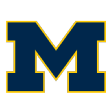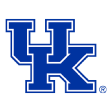After the first round of the NCAA tournament concluded, we decided to reseed the field entering the second round. Maybe you loved your team's seed. Maybe you hated it. (Purdue and LSU fans, we know you hated it.) Either way, we're back to do it again. Here's our reseeding of the Sweet 16:

1. Duke Blue Devils (Original seed: No. 1; Reseed: No. 1)
My goodness. The Blue Devils needed miraculous shots by Zion Williamson and RJ Barrett in the final seconds of a win over an inspired UCF squad in the second round to advance to the Sweet 16. After the game, head coach Mike Krzyzewski said his team got "lucky." That's a reasonable verdict after Aubrey Dawkins missed a game-winning tip-in at the buzzer. Sure, Williamson had 32 points and a clutch shot in the final seconds, and Barrett had a go-ahead put-back. But that's not the narrative right now. This is: UCF, a 9-seed, made a Duke squad that connected on 40 percent of its 3-point attempts look vulnerable. The same question remains, though: Can any team in America beat Duke when Williamson plays the way he did against the Knights? For the past five months, the answer has consistently been "no."

2. Gonzaga Bulldogs (Original seed: 1; Reseed: 1)
A week ago, Gonzaga endured complaints about its status as a top seed after scoring 47 points in a loss to rival Saint Mary's in the West Coast Conference tournament title game. Yet Gonzaga's best-in-America offense had proved itself in a victory over Duke (10-for-19 from the 3-point line against the Blue Devils) at the Maui Invitational and in seven wins in WCC play by 30 or more points. That same powerful unit has reached the Sweet 16 after registering 170 points in 135 possessions in wins over Fairleigh Dickinson and Baylor. Brandon Clarke (36 points, five blocks against Baylor) has been the most dominant player on a squad that has lost one game over the past 100 days.

3. North Carolina Tar Heels (Original seed: 1; Reseed: 1)
The greatest seasons of Roy Williams' tenure at North Carolina have all been attached to savvy, gritty, tougher-than-hell point guards. In 2005, he had Raymond Felton. Four years later, he won a title with Ty Lawson, a 5-foot-11 star. In 2017, Joel Berry fought through multiple injuries to help UNC capture its third national championship under Williams. Now, after two rounds of NCAA tournament action, it's fair to wonder if Coby White, who recorded 17 points and six rebounds in Sunday's win over Washington, will be the next player to fulfill that role for a title team in Chapel Hill. Plus, if Nassir Little has truly found his niche within Williams' scheme -- he scored 39 points combined in the first two rounds of the NCAA tournament -- this stacked squad might chase a fourth ring for Williams.

4. Virginia Cavaliers (Original seed: 1; Reseed: 1)
Now that Virginia has advanced to the Sweet 16 and put last year's first-round loss to UMBC behind it, the Cavaliers should be viewed as serious contenders to win the national championship. They've lost to Florida State and Duke twice (the Blue Devils made 63 percent of their 3-pointers in the second game), and they're more talented than they were a year ago, when they didn't have De'Andre Hunter in that loss to UMBC. Proof? Kyle Guy missed 13 of 15 shots in Virginia's win Sunday over Oklahoma, which possesses a top-25 defense. But the Cavaliers still managed to secure a 63-51 win, as Mamadi Diakite (14 points) stepped up for his team. Virginia has offensive options it lacked in past years. That's what makes this Virginia team different.

5. Texas Tech Red Raiders (Original seed: 3; Reseed: 2)
About 48 hours before its loss against Texas Tech on Sunday in the second round, Buffalo dropped 91 points on Arizona State. The Bulls had been widely recognized as one of America's best offenses after finishing top-25 in adjusted efficiency and averaging 84.9 PPG this season. They made 56 percent of their shots inside the arc in MAC play. They had scored 82 or more points in six consecutive outings. And then they met Texas Tech, America's most efficient defense, per ESPN Analytics. The Red Raiders held Buffalo to a season-low 58 points. Chris Beard's squad can guard anyone, and Jarrett Culver is a top-10 pick who continues to enhance his stock. That's a recipe for a run to Minneapolis.

6. Michigan State Spartans (Original seed: 2; Reseed: 2)
Cassius Winston has carried Michigan State throughout a turbulent season. He has played without sidekick Joshua Langford (foot) for three months, and Nick Ward has averaged just under 13 minutes per game since returning from a five-game absence due to a fractured hand. So Winston is still the catalyst for a Michigan State squad that has surrendered more than 65 points three times since a three-game losing streak in February. Winston followed his 26-point effort in a 76-65 first-round win over Bradley with 13 points, nine assists and two steals in a 70-50 win over Minnesota, which lost Jordan Murphy to injury early in the game. The Spartans continue to ride one of the most talented players in the field on offense combined with a top-10 defense.

7. Michigan Wolverines (Original seed: 2; Reseed: 2)
The Wolverines reached last year's national title game after holding their first five opponents in the NCAA tournament to an average of 58.6 points and relying on a defense that ended the season ranked third overall on KenPom. This season's team, on a per-possession measurement, is even better. Montana, the Big Sky's most efficient offense, and Florida, a middling offensive team in SEC play, combined to average 52 points per game in first- and second-round losses, respectively, to Michigan. The Wolverines are just 12-for-38 from the 3-point line as a team, but Jordan Poole, Iggy Brazdeikis and Charles Matthews have helped them generate the offense necessary to win. Michigan is a dangerous squad right now.

8. Houston Cougars (Original seed: 3; Reseed: 2)
Kelvin Sampson's squad had hummed along since the start of the season, chopping through Oregon, LSU and Utah State before winning a four-bid American Athletic Conference by two games. The Cougars have been known for defense, after their AAC opponents made just 43.8 percent of their shots inside the arc. But Houston just outscored Georgia State and Ohio State by 45 points combined in two games. The Cougars have lost three games all season, and Corey Davis Jr. is averaging 23.5 PPG (38 percent from the 3-point line) in the NCAA tournament. Houston can make a run to Minneapolis.

9. Auburn Tigers (Original seed: 5; Reseed: 3)
The magic continued for Bruce Pearl's squad, which beat Kansas 89-75 in the second round. Entering the postseason, the prognosis on Auburn was simple: If the Tigers could force turnovers and then convert those opportunities into 3-pointers, they would probably win a few games in the NCAA tournament. Well, that's the formula they used to reach the Sweet 16. In a tighter-than-expected, one-point win over New Mexico State in the first round and Saturday's victory over Kansas in the second round, Auburn forced a combined 32 turnovers and connected on 25 of 61 3-pointers. The Tigers have won 10 in a row. They look dangerous.

10. Purdue Boilermakers (Original seed: 3: Reseed: 3)
The Boilermakers played a grind-it-out game in the opening round against an Old Dominion squad that has played top-50 defense this season. Overall, the Purdue team that produced just 56 points in a loss to Maryland in February, scored 48 points in a win over Indiana and suffered a pair of losses to Minnesota in a 10-day stretch later in the season seemed to lack the oomph the Boilermakers had displayed earlier this season. But Saturday's record-breaking performance in an 87-61 win was both captivating and impressive. Carsen Edwards (42 points) established a school record with nine 3-pointers. Purdue's 26-point advantage against Villanova was the Wildcats' worst loss in NCAA tournament history. After recording a subpar 0.94 points per possession against Old Dominion, Purdue exploded with a 1.38 PPP and 53 percent clip from the 3-point line.

11. Kentucky Wildcats (Original seed: 2; Reseed: 3)
PJ Washington's ongoing absence due to injury is a real concern for a Kentucky squad that beat Wofford just 62-56 in the second round. It was a close game despite Terriers star Fletcher Magee's missing all 12 of his 3-point attempts. Tyler Herro finished 2-for-11. The team's 3-for-13 clip from the 3-point line didn't help either. Yet the Wildcats, who got 14 points and 11 rebounds from Reid Travis, prevailed without their best player -- and after Herro went cold -- by playing great defense. Wofford entered the game ranked second in 3-point shooting but recorded a sub-30 percent mark against Kentucky. The Wildcats will advance, but we're not sure if Washington will play in the next round. That's why the Wildcats are ranked this low. The Wildcats without Washington still own a talented fleet, but they're not the same imposing collective.

12. Florida State Seminoles (Original seed: 4; Reseed: 3)
Leonard Hamilton's squad didn't look great (42 percent on 2-pointers) in a win over Vermont, which made 16 of 32 3-pointers, in the first round. Against Murray State and rising star Ja Morant, however, FSU made a statement. The same Murray State squad that had dismantled Marquette in a 19-point win on Thursday made just 30.2 percent of its shots inside the arc in Saturday's loss in the second round against the ACC's best interior defense. Ja Morant made his first five 3-point attempts but missed 12 of 15 2-pointers, the worst mark of his career. With Terance Mann (18.5 PPG) and Mfiondu Kabengele (21.5 PPG) starring in both games and a defense with unrivaled length, FSU could be a handful, again, for Gonzaga in the Sweet 16.

13. LSU Tigers (Original seed: 3; Reseed: 4)
Tony Benford's ride continued at LSU after Tremont Waters beat Maryland on a beautiful drive in the final moments of their second-round matchup on Saturday. The Tigers still boast one of the most talented groups in the country. Waters and Naz Reid are two of six former ESPN 100 recruits for the Tigers, who have advanced to the Sweet 16 without head coach Will Wade, who was suspended when he was tied to reports of a pay-for-play scheme a few weeks ago. But LSU has also been outscored in second halves of this NCAA tournament by 18 points combined in wins over Yale and Maryland. It had a 15-point lead against Maryland before the Terps stormed back. But this group boasts the size and athleticism to compete with anyone.

14. Tennessee Volunteers (Original seed: 2; Reseed: 4)
Tennessee squandered a 25-point lead in its eventual 83-77 overtime win against Iowa in the second round on Sunday. Had the Hawkeyes won that game, it would have tied the record for the greatest comeback in NCAA tournament history. The Vols are a strong squad, as proved by wins over Kentucky, Gonzaga and Louisville. But the Iowa comeback magnified recent defensive lapses for the Vols, whose opponents have scored 106 points per 100 possessions -- a seven-point increase from Tennessee's mark in SEC play -- over the past 12 games (8-4). But Grant Williams -- the Wooden Award contender who finished Sunday's win with 19 points, 7 rebounds, 5 assists, 4 steals and 3 blocks -- is a playmaker who can help the Vols win close games.

15. Virginia Tech Hokies (Original seed: 4; Reseed: 4)
Justin Robinson has been a valuable contributor off the bench (nine points in Friday's 66-52 win over Saint Louis, 13 points in Sunday's 67-58 win over Liberty) since returning from a foot injury that cost him 12 games. And Virginia Tech, a top-10 3-point shooting team, is still potent from beyond the arc (42 percent from 3 in two games). The Hokies held both Saint Louis and Liberty under 60 points. But they were 13- and 12-seeds, respectively. With seven minutes to play, however, Sunday's matchup was a three-point game. The road to the Elite Eight must now go through Duke, a team the Hokies defeated last month with Zion Williamson sidelined by a knee injury.

16. Oregon Ducks (Original seed: 12; Reseed: 4)
Oregon is the only seed above the 5-line to reach the Sweet 16, so let's forget who Oregon was for the first four months of the season and focus on the present. A Feb. 28 win over Arizona State kicked off a 10-game win streak for Dana Altman's squad. The Ducks' 73-54 victory over UC Irvine in the second round, which followed a first-round win over Wisconsin, was an explosive effort for a team that started cold after the break but finished with a 38-17 run. Payton Pritchard and Louis King have transformed this group in recent weeks. The Ducks will face Virginia in the Sweet 16. Here's the truth: These Ducks can beat Virginia in the Sweet 16.
